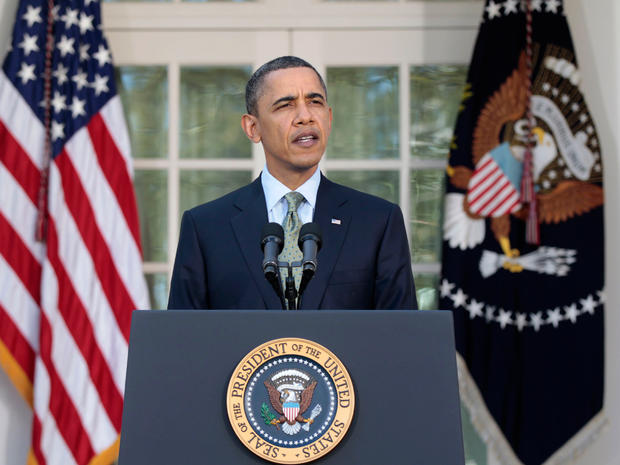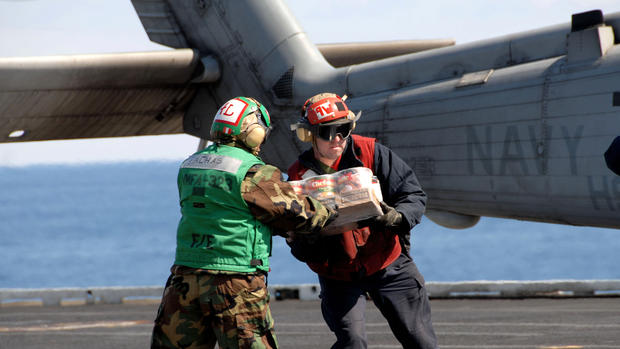Obama orders safety review of nuclear plants
Updated at 4:24 p.m. ET
In the wake of the disaster in Japan, President Obama announced today he has asked the U.S. Nuclear Regulatory Commission to perform a comprehensive review of the safety of domestic nuclear plants.
The nation's nuclear power plants have already undergone exhaustive study, Mr. Obama said today from the White House, and have been declared safe. Further, he added that nuclear power remains an important part of the future of the United States' energy portfolio, along with wind, solar, natural gas and clean coal.
The United States yesterday authorized the first evacuations of Americans out of Japan as the nation works to recover from last week's devastating earthquake and tsunami and deal with the unfolding nuclear issues. The damage to the nuclear reactors at the Fukushima Dai-ichi plant "poses a substantial risk to people who are nearby," Mr. Obama said today, adding that the evacuation of citizens within a 50-mile radius of the plant was "based upon a careful scientific evaluation."
Beyond the 50-mile radius, the risks do not currently call for an evacuation, Mr. Obama said, but he nevertheless authorized the voluntary departure of family members and dependents of U.S. officials working in northeastern Japan.
Complete coverage: Disaster in Japan
14 "near misses" cited at U.S. nuke plants in 2010
U.S. troops mobilized for Japan relief efforts
Trace amounts of radiation from Japan have been detected in Chicago, according to CBS News station WBBM-TV, but Mr. Obama said today that Americans on U.S. soil should be safe.
The Centers for Disease Control and Prevention and public health experts do not recommend that people in the United States take precautionary measures beyond staying informed, he said.
"In going forward, we will continue to keep the American people fully updated because I believe that you must know what I know as president," Mr. Obama said.
The United States is working aggressively to help Japan, "one of our closest friends and allies in the world," the president said. The U.S. has already flown hundreds of hundreds of missions to support the recovery efforts and distributed thousands of pounds of food and water to the Japanese people. U.S. nuclear experts are also on the ground to help contain the damage at the impacted reactors.
"We're sharing with them expertise, equipment and technology so that the courageous responders on the scene have the benefit of American teamwork and support," Mr. Obama said.
Meanwhile, American citizens are donating to organizations assisting the relief efforts, such as the Red Cross. Those interested in helping should visit USAid.gov, Mr. Obama said.
"In the midst of economic recovery and global upheaval, disasters like this remind us of the common humanity that we share," he said today. "We see it in the responders who are risking their lives at Fukushima, [and] we show it through the help that has poured into Japan from 70 countries."


